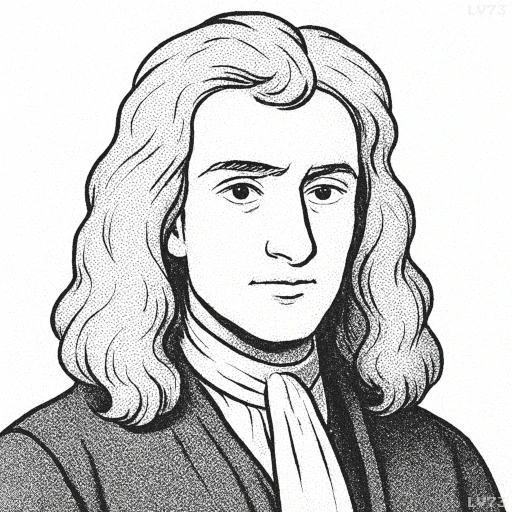“We are to admit no more causes of natural things than such as are both true and sufficient to explain their appearances.”

- January 4, 1643 – March 31, 1727
- Born in England (UK)
- Natural philosopher, mathematician, physicist, astronomer, theologian
table of contents
Quote
“We are to admit no more causes of natural things than such as are both true and sufficient to explain their appearances.”
Explanation
In this quote, Isaac Newton is expressing a key principle that would come to define the scientific method: the idea that explanations for natural phenomena should be as simple as possible and should only invoke causes that are both true and sufficient to explain the observations we make. Newton is essentially advocating for parsimony, which is the idea that the simplest explanation, involving the fewest assumptions or causes, is usually the most accurate. He is cautioning against overcomplicating explanations by introducing unnecessary or speculative causes that do not directly contribute to understanding the phenomena.
Newton’s principle aligns with what is now known as Occam’s Razor, a heuristic used in science and philosophy to prefer the explanation with the least number of assumptions. In Newton’s time, this approach was revolutionary because it marked a shift from relying on metaphysical or theological explanations for natural events to focusing on empirical evidence and observable phenomena. By focusing on causes that were both true (supported by evidence) and sufficient (adequate to explain the observed effects), Newton laid the groundwork for the systematic, evidence-based approach that characterizes modern science.
Today, Newton’s principle remains central in scientific inquiry. The idea that theories should only propose as many causes as are necessary to explain the observations is fundamental in fields ranging from physics to biology. Modern scientists continue to seek explanations that are elegant, efficient, and well-supported by evidence, much in the spirit of Newton’s approach. His caution against introducing unnecessary complexity is a reminder that scientific theories should remain grounded in observable, testable facts, without resorting to speculative or unverified explanations.
Would you like to share your impressions or related stories about this quote in the comments section?
